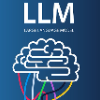The observed similarities in the behavior of humans and Large Language Models (LLMs) have prompted researchers to consider the potential of using LLMs as models of human cognition. However, several significant challenges must be addressed before LLMs can be legitimately regarded as cognitive models. For instance, LLMs are trained on far more data than humans typically encounter, and may have been directly trained on human data in specific cognitive tasks or aligned with human preferences. Consequently, the origins of these behavioral similarities are not well understood. In this paper, we propose a novel way to enhance the utility of LLMs as cognitive models. This approach involves (i) leveraging computationally equivalent tasks that both an LLM and a rational agent need to master for solving a cognitive problem and (ii) examining the specific task distributions required for an LLM to exhibit human-like behaviors. We apply this approach to decision-making -- specifically risky and intertemporal choice -- where the key computationally equivalent task is the arithmetic of expected value calculations. We show that an LLM pretrained on an ecologically valid arithmetic dataset, which we call Arithmetic-GPT, predicts human behavior better than many traditional cognitive models. Pretraining LLMs on ecologically valid arithmetic datasets is sufficient to produce a strong correspondence between these models and human decision-making. Our results also suggest that LLMs used as cognitive models should be carefully investigated via ablation studies of the pretraining data.
翻译:暂无翻译





